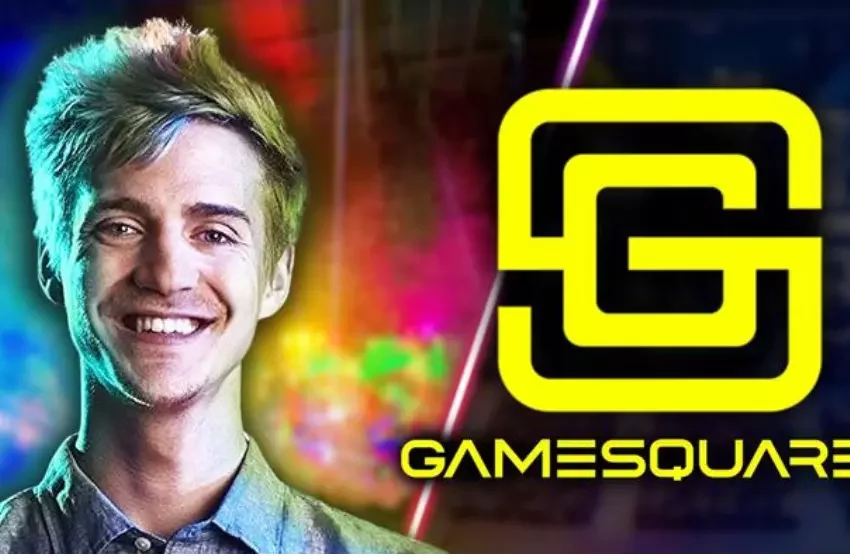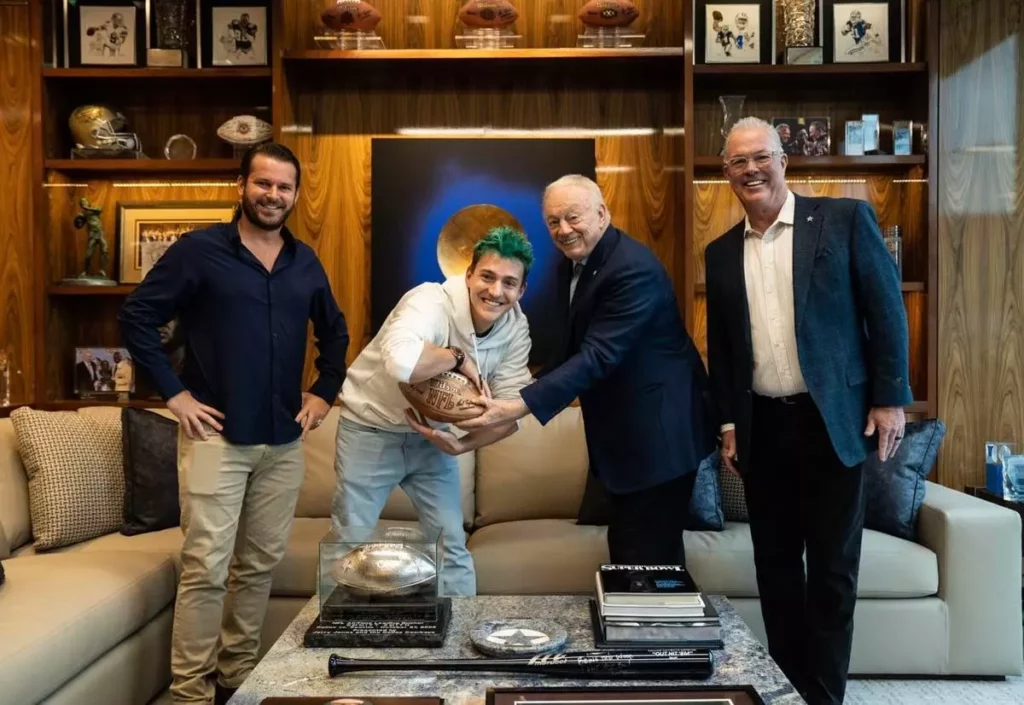Tyler ‘Ninja’ Blevins joins GameSquare to help it reach profitability.

Joins ” GAMESQUARE ” !
More than anyone else, Tyler Blevins is responsible for bringing video games into the public eye. The gamer known as Ninja has inspired a generation to transform their pastime into a lucrative job and, ultimately, a multibillion-dollar wealth by streaming their gameplay online during the past decade. Blevins, who is now 31, says he is considering options beyond the streaming industry.

On Wednesday, Blevins took the first step towards that future when he announced he would be joining GameSquare as its chief innovation officer. GameSquare is a gaming startup that is 40% owned by billionaires Jerry Jones and John Goff. This “lovely little fancy title,” as Blevins puts it, comes with 1,000,000 stock options and another 1,000,000 restricted stock units in the publicly traded corporation.
Blevins says, “I believe it’s a little bit of me looking for the next step, something to look forward to, and moving outside my comfort zone.” “When it comes to doing something other than streaming, I haven’t broken out of it in a long time.”
Blevins says he’ll be making videos for GameSquare’s esports division, Complexity, and will also be involved in the company’s strategy and its partnerships with companies. He will be the public face of Ninja Labs, a project whose specifics have not yet been worked out but which will involve an incubation programme in which he and other creators will share equal ownership of physical objects and intellectual property. He claims he will be given more responsibility as time goes on.
GameSquare’s attempt to merge with Engine Gaming and Media, which is listed on the NASDAQ, is a bold one. Prices for shares of Engine have been around $1.40 recently. GameSquare will maintain its name and hold 60% of the merged company. The combined size of the two enterprises is considerable, as seen by their recent annual revenue of almost $70 million. But whether or not it will be profitable is still up for debate.
Despite gaming’s widespread acceptance as the medium’s future, the question of when that future will really arrive has persisted for some time. Some private teams have received money in recent years at valuations surpassing several hundred million dollars, well exceeding their respective commercial capacities, due to the fact that they have millions of online followers, sports-inspired branding, and rosters of popular gaming talent.
According to an interview Jones in September 2017, “I think for me it was more of not wanting to get left behind” was the driving force behind his 2017 purchase of Complexity. Since then, real estate mogul Goff, whose holdings include the Canyon Ranch retreat in Arizona, and Dallas Cowboys owner Jones have invested roughly $40 million in GameSquare via cash, stock, equity, or credit.
However, recent events have shown that these institutions have flaws in their durability and scalability. The layoffs at 100 Thieves and the precipitous fall of FaZe Clan’s shares from a market valuation of over $1 billion to under $50 million illustrate that the industry has not yet found an answer to its fundamental question: how to translate large crowds and brand enthusiasm into consistent earnings.
Companies that are involved in competitive gaming sometimes serve many other roles, making the term “esports organisations” an incomplete and maybe outmoded shorthand. In fact, esports as an industry has continuously been a money loser for clubs. Instead, firms have tried to ride the coattails of popular creators, retailers, or exclusive technology to success.

For instance, CEO Justin Kenna of GameSquare has described esports as a “promotion expense.” In addition to esports, audience analytics, and merchandise, his business strategy includes a creative studio and a media agency, as he claims. Keeping operations in-house not only reduces expenses but also facilitates the implementation of agreements and marketing for talent throughout any corporation.
The ultimate goal of GameSquare is to develop a complete end-to-end network for its own talent, amassing properties apart from the content they produce themselves. As a matter of fact, the corporation does not share in the AdSense earnings of the online material made by its talent, preferring to put their resources towards what they see as higher-margin ventures, such as feature-length documentaries on major streaming services or toys sold at Walmart.
Kenna claims that the newly merged GameSquare and Engine, which is expected to close in late March, would generate positive cash flow by the end of the year. This, of course, does not take into consideration the substantial costs associated with the merger.
Successful completion of this project would be a significant move towards restoring public trust in the sector. Yet, the potential size of these groups is still unknown. A $1 billion valuation was in the “near future,” Kenna told D Magazine in October, just before the market burst. The current market caps of GameSquare and Engine are $40m and $23m respectively. According to Kenna, the company is now concentrating on business basics and innovation, the latter of which is fully under the purview of its newest C-suite leader, Ninja.
“I think the reason I joined Complexity and this relationship with GameSquare is because I feel they have the ability to exceed all the challenges that a lot of the other organisations have been confronted with,” Blevins tells Forbes. “There will be pressure on me to help develop the firm, and obviously make sure we’re doing innovative things, but it won’t be all on me.” The team I signed with is fantastic.




